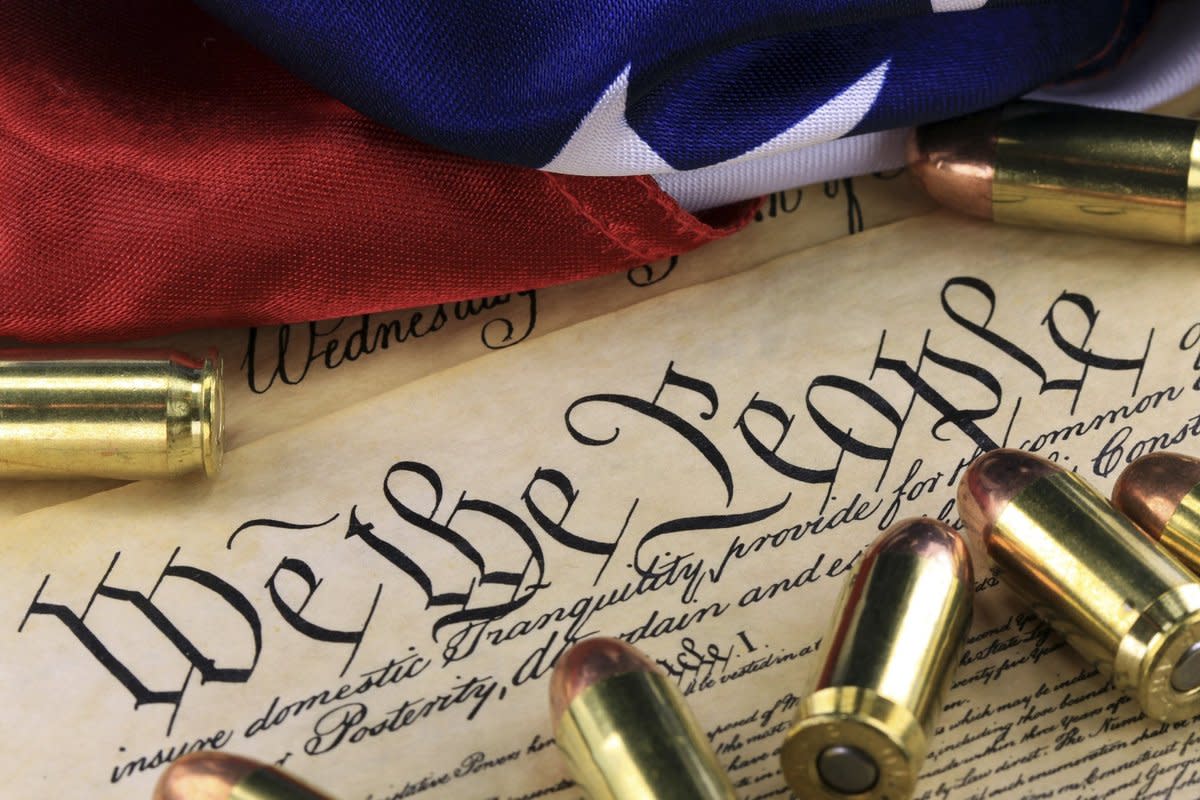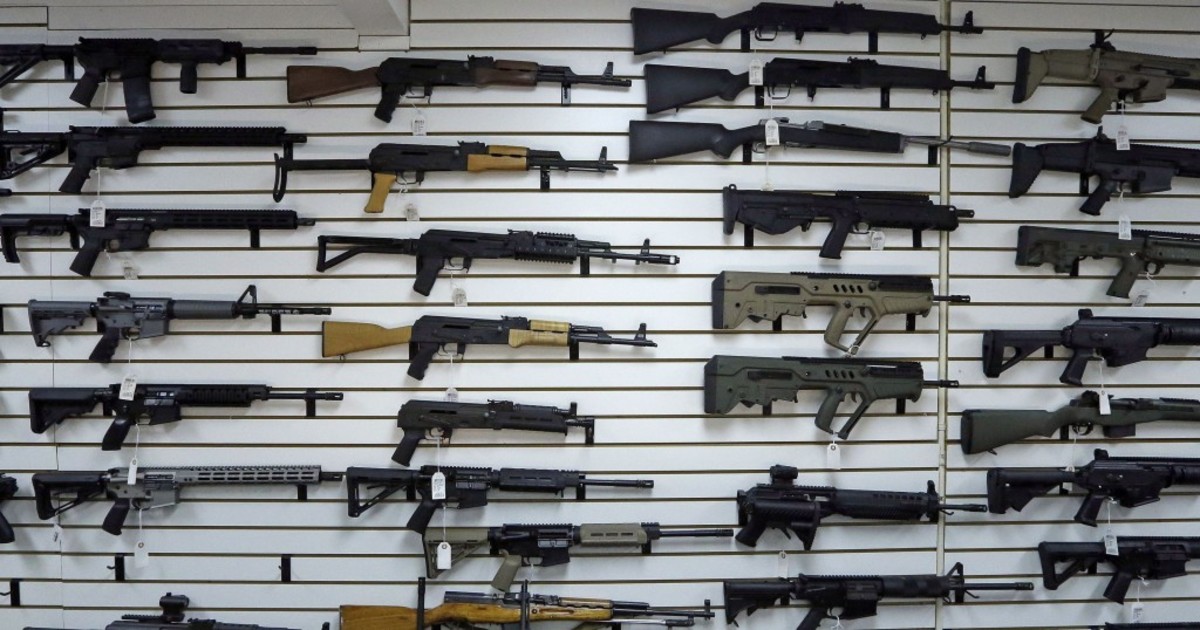What is it about Gun Control?
Emotional Rhetoric In Pictures
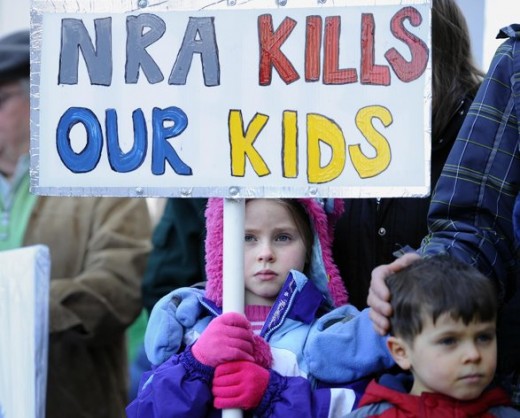
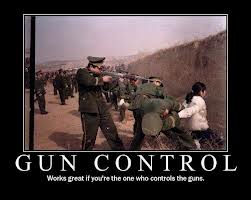
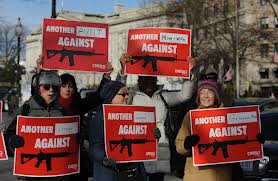
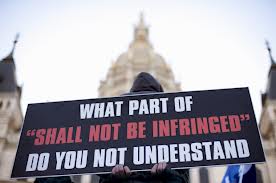
The State of Gun Control in America.
In the United States of America, the issue of gun control is the center of a wide ranging, and ongoing, debate. It causes intense emotions on both sides, including the author of this hub. Given the complexities of the issue, and the passions it evokes, it is essential that people on all sides attempt to remain open minded. For myself, I believe that an answer to gun control can only truly be found when all of the facts are presented. I hope to provide an informative, and, most essentially, an accurate presentation of the facts.
First, I will give a brief overview of the history of gun control in America, from the earliest English colonies, on up to the events during and after the tragedy at Newtown, Connecticut. I will then give an overview of the Second Amendment itself, and the views and debate about its meaning. Then, I will review current federal gun laws and will present President Obama's recent proposals on gun control, including a link to the plan itself. Finally, I will state where I stand on the issue.
Along the way, I will provide pictures, graphs, charts, links to other articles and, at the bottom of this hub, a poll. I hope to teach readers of this hub something new about the gun control debate. Along the way, I hope to learn a thing or two about it myself.
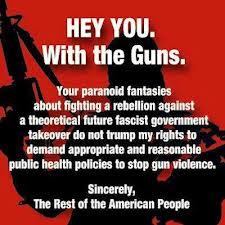
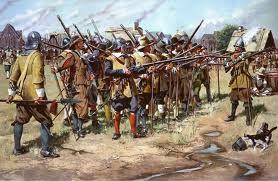
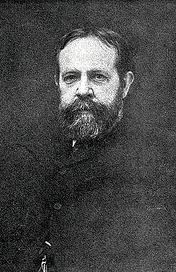
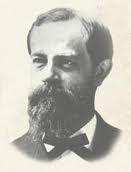
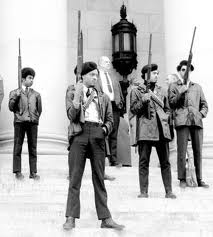
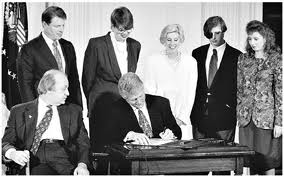
A brief history of American Gun Control
Gun Control: From Jamestown to Newtown
The conditions faced by the settlers at Jamestown necessitated some form of personal defense. It is likely that any settler at Jamestown who could afford a musket had one with him, and if he didn't, some form of weaponry was provided. Later, in 1684, Virginia's colonial government required all free Virginians to “provide and furnish themselves with a sword, musquet and other furniture fitt for a soldier… two pounds of powder, and eight pounds of shott….”
The New England colonies also required possession of firearms. In Massachusetts, every person was to be “furnished with good & sufficient armes.” In fact, every colony in New England tried its very hardest to ensure that the population was armed. Poverty was no excuse to go without a musket; those who could not afford to pay for one were required to trade produce such as corn for a musket with their local militia, which would then sell the traded produce to make up for the cost.
But guns and gun ownership were regulated even then. In one case, the city of Boston made it a felony to shoot a gun in the city limits, after many accidents involving guns resulted in much death and destruction of property. It was also illegal for anyone other than a free white male to own a gun. Sales to Indians or Indian tribes were usually prohibited by colonial governments. It was also illegal to sell a gun to a slave or freedman.
Gun ownership grew during the 1700's, particularly as a result of the French and Indian War. Later, the British insisted that the colonies buy their gunpowder from Britain, and then taxed it, as they did for many other products. This taxation was among many of the grievances that led the colonies to revolt in 1775.
The Founding Fathers also insisted on gun ownership, even as they advocated regulation of guns. In many states, citizens were still required to own guns, and males of a certain age were still encouraged to join local militias. Even so, the cities of Boston, New York, Albany and Philadelphia, among others, set aside public storage for guns and ammunition or required owners to register their guns. In the years after the War of 1812, several states passed laws restricting concealed weapons.
During Reconstruction, a new stage of the gun control debate began. As white supremacist groups such as the Ku Klux Klan began forcibly and often violently confiscating firearms from blacks, Northerners, such as Representative John Bingham of Ohio, began working to add an amendment to the constitution which could protect the rights of all Americans, including the right to bear arms. The eventual result was the 14th Amendment.
The NRA was founded in 1871 by George Wingate and William Church, as a response to what they considered to be a problem of poor marksmanship in the Union Army. The organization initially supported gun control legislation. In 1934 the NRA endorsed the first major federal gun control legislation, the National Firearms Act of 1934. The NRA continued supporting such legislation, as long as it did not intrude upon Americans right to responsibly own a firearm.
During the 1960's, the Black Panther Party essentially launched the modern gun rights movement. In the 1970's, Harlon Carter, the new executive president, began transforming the NRA into the organization that it is today. In 1994, Congress passed a ten year long ban on assault weapons. Riddled with loopholes and inanities, the law was only partially effective, and when it expired in 2004, Congress failed to renew it.
Most recently, of course, have been the events of the last few years, during which a shocking slew of gun massacres have been on the increase, even as overall gun violence and crime have fallen to their lowest levels in years. These events have triggered a fierce and bitter divide over gun control. Until recently, gun rights advocates have had the advantage. After the events at Sandy Hook Elementary School, it remains to be seen just where the debate will lead in the future.
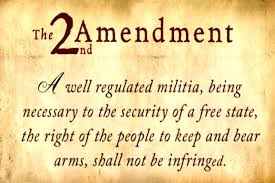
About the Second Amendment
"A Well Regulated Militia" or "Shall Not be Infringed?"
The Second Amendment is possibly the most frustrating and divisive part of the constitution. Frustrating because it is so vaguely worded, and divisive because everyone who reads it seems sure that it clearly supports their own position on gun control. Below is the Second Amendment in full:
"A well regulated militia, being necessary to the security of a free state, the right of the people to keep and bear arms, shall not be infringed."
The two sides of the gun debate rarely seem to pay attention to the Amendment in its entirety. Gun rights advocates often seem to see only the second half of the sentence. They commonly choose to focus mainly on the words shall not be infringed. For their part, the gun control advocates focus on the first part of the sentence, emphasizing A well regulated militia. Let us look at what I see as the merits and drawbacks of these positions.
Gun rights advocates claim that the Second Amendment protects an individuals right to own a gun, which seems to be backed up by the amendments mention of the right of the people. The amendment also states that this right shall not be infringed, which leaves little room for argument. However, at the time these words were written, no one had ever heard of an AK-47. Justice Antonin Scalia, who wrote the majority opinion for the case District of Columbia v. Heller, and who is one of the staunchest proponents of "originalism," seemed to backtrack on this view of the constitution, presumably because it created the following barrier: If the constitution is grounded in the Founding Fathers original intent, then assault weapons would not be protected.
Gun control advocates claim that the Second Amendment protects Americans collective right to bear arms; that is, to form a militia. They focus on the words A well regulated militia.The implication is that the Second Amendment was meant to apply only to organized groups of well armed citizens, and that those groups were to be well regulated. But does this interpretation allow individuals the freedom to hunt, or to defend their homes, family and property?
When taken as a whole, the Second Amendment seems to be vague and elusive on purpose. No one can quite agree on what it actually means, and one half of the sentence seems to contradict the other half.
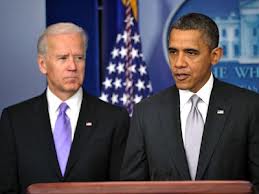
President Obama's Plan
Gun Control?
Currently, the United States federal government has the weakest gun control laws of any developed, industrialized nation in the world. And although gun violence and crime rates have been falling since the 1990's, the United States still has the highest homicide rate of any country in the developed world. No other developed country even comes close to America's homicide rate. Since handguns are used in the vast majority of homicides, it seems reasonable to conclude that there is a relationship between the two.
Current gun laws call for the registration of certain guns and imposes a tax on the manufacture of those guns. Gun laws also regulate interstate commerce in firearms. The Brady Handgun Violence Prevention Act requires a background check on people buying guns. However, there is a loophole that allows private sales of firearms to be conducted without background checks.
Current gun laws do not seem to have been a particularly influential factor in falling crime rates. On the other hand, they are also weakened by loopholes like the loophole in the Brady Handgun Violence Prevention Act. In the end, it seems to me that there is a fairly decent chance for criminals, or the mentally unstable, to gain access to guns.
In response to the Sandy Hook tragedy, President Obama has proposed a plan to curtail gun violence in future. In his plan, he proposes both legislative and executive actions to prevent gun violence. His executive actions include;
- Issuing a presidential memorandum to require federal agencies to make relevant data available to the federal background check system.
- Improving incentives for states to share information with the background check system.
- Issuing a presidential memorandum to require federal law enforcement to trace guns recovered in criminal investigations.
Obama's legislative proposals include;
- Requiring criminal background checks for all gun sales, including those by private sellers that currently are exempt.
- Limiting ammunition magazines to 10 rounds.
- Confirming President Obama's nominee for director of the Bureau of Alcohol, Tobacco, Firearms and Explosives.
In order to see the full plan, there are two links at the bottom of the hub.
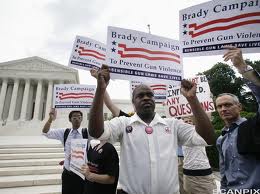
Conclusion
My Postion
In writing this hub, I was reminded constantly about all of the many angles and complexities of the gun control debate. My own position on gun control remains unchanged; I can see the need and desire for self protection. There is no justifiable reason to deny people the right to own a gun, and what they do with their gun is their business. But allowing gun control laws to remain as they are is irresponsible, especially in light of the string of tragedies recently suffered; Virginia Tech, Tuscon Arizona, Aurora Colorado, the Sikh Temple Shooting and Sandy Hook Elementary School.
As Gabriel Giffords put it, "We must do something."

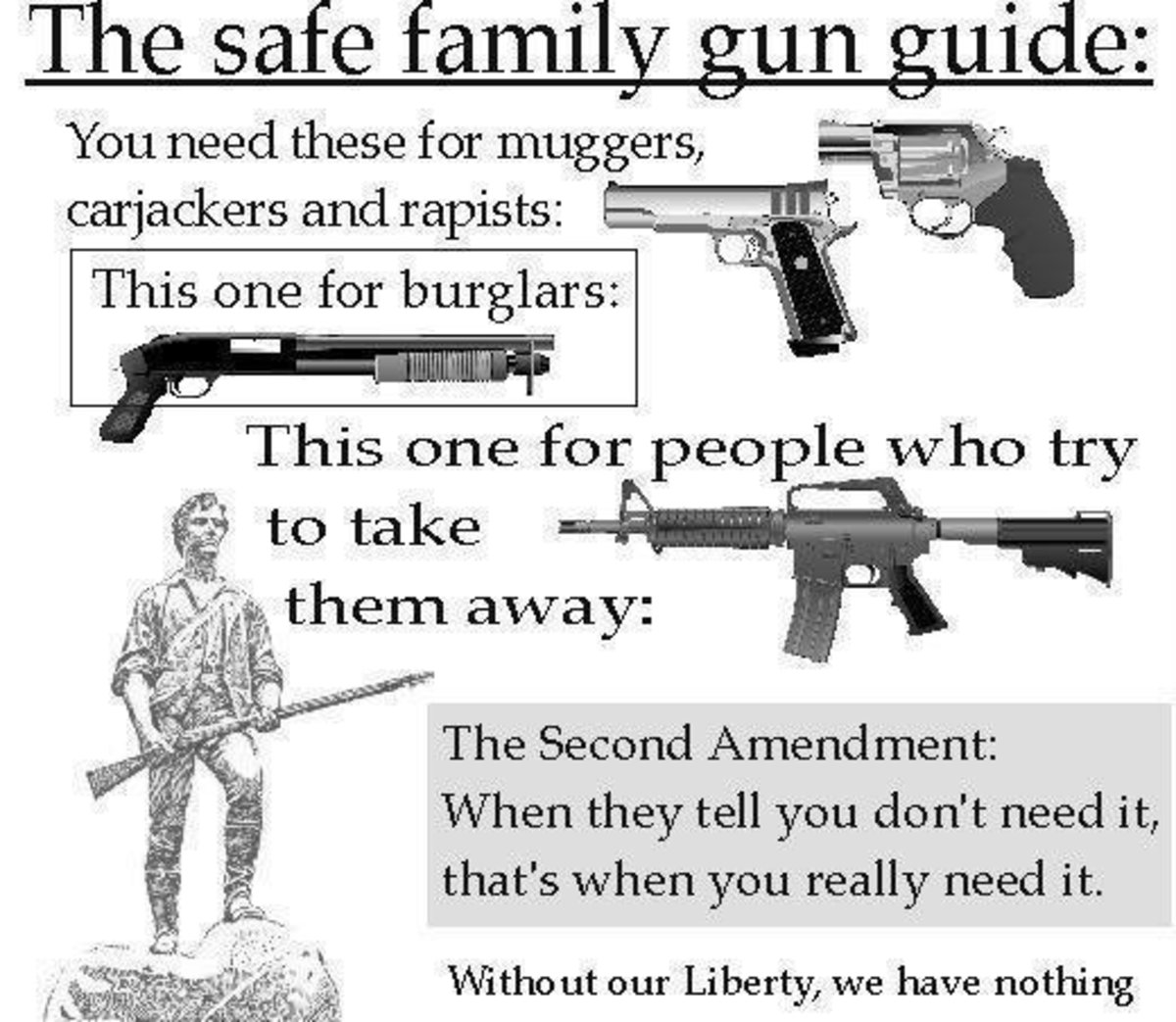

![Gun Rights: Not All Firearms Are Constitutionally Protected As Some Would Have You Believe. [278*3]](https://usercontent2.hubstatic.com/12935107_f120.jpg)

